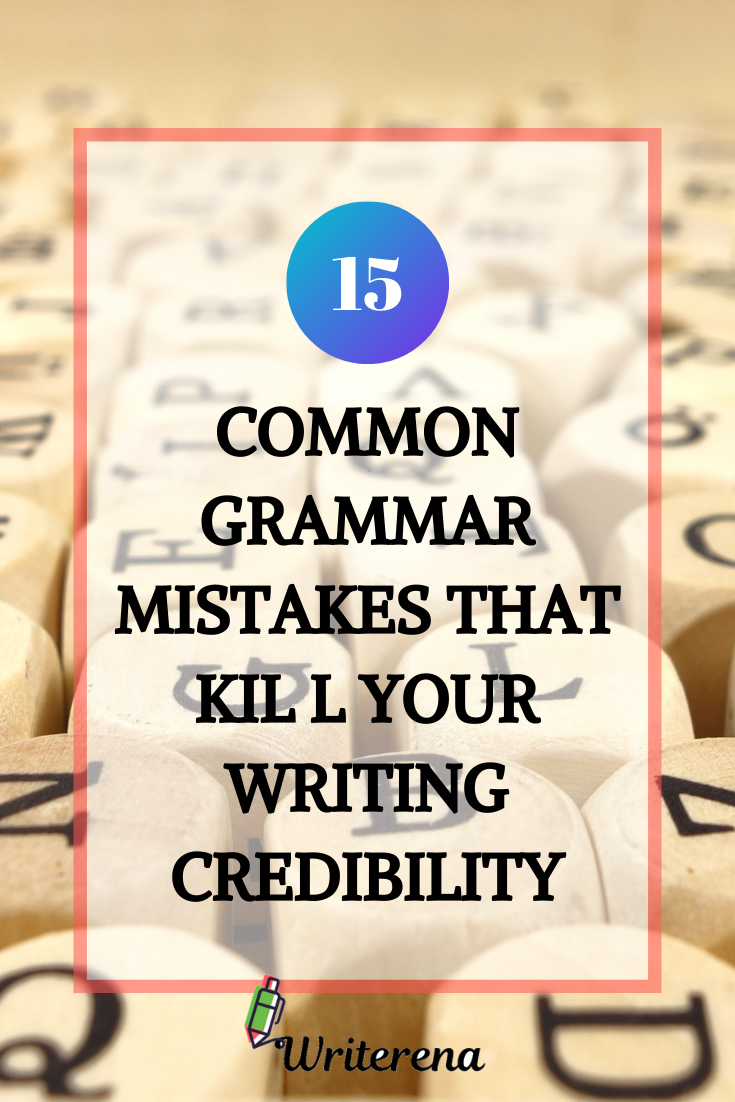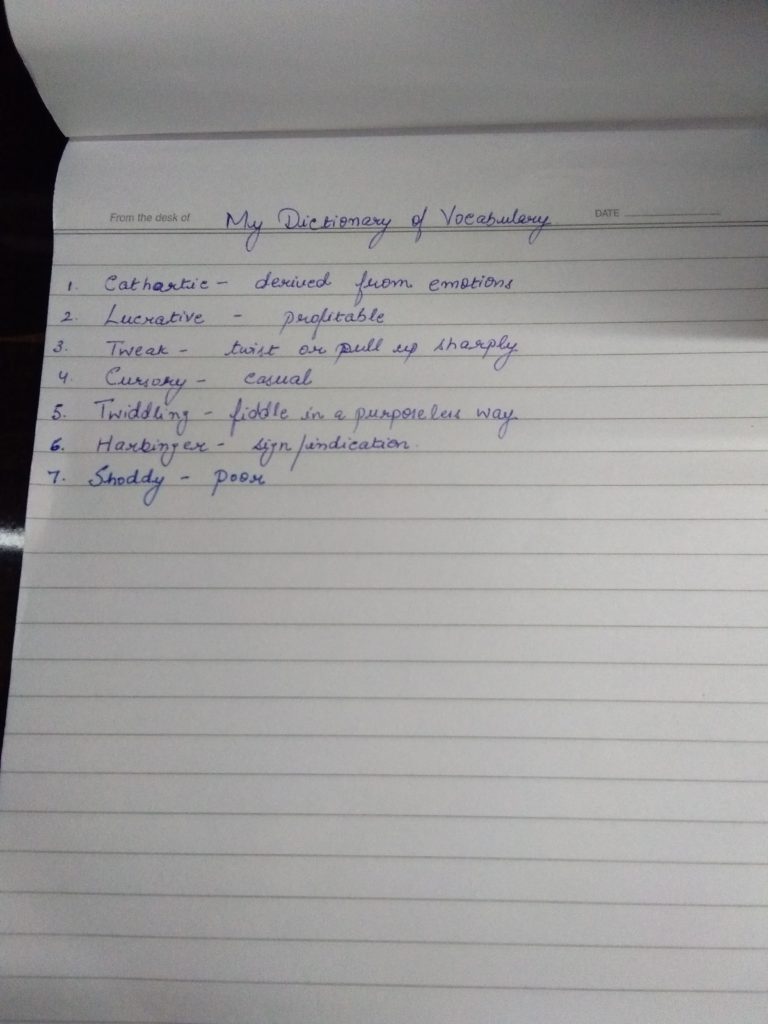Last updated on 2nd December 2020 by Dr Shivangi.
Writing and speaking in English are two different tasks. You can make this out when readers turn away from your site because of poorly written English.
That’s because writing in English doesn’t come easily to all. English is a mystery, even for native English speakers.
Because it borrows words from various languages, keeps evolving, and bends a lot of rules. With so much confusion, one is bound to make mistakes.
However, you can’t give this excuse as a content writer; whether you write for your own blog or other’s business.
Poor English writing skills not only undermine your credibility as a writer, but also hamper your growth in the content writing industry.
Read: What other skills you need to be a successful content writer?
When you’ll submit your samples to the clients for freelancing projects, they’ll easily make out your poor English writing skills and won’t hire you for work.
Therefore, it’s time you learn the 5 easy ways to improve your English writing skills today.
Best part?
They are simple to follow, FREE, and will improve your English writing skills in JUST 30 days.
- The Common Mistakes Made in Written English
- 1. Subject-verb agreement errors
- 2. Sentence fragments
- 3. No Comma after an introductory element
- 4. Misuse of the apostrophe with “Its”
- 5. Omitting comma in a compound sentence
- 6. A misplaced or dangling modifier
- 7. Vague pronoun reference
- 8. Wrong word usage
- 9. Run-on sentences
- 10. Superfluous commas
- 11. Lack of parallel structure
- 12. Sentence sprawl
- 13. Comma splice
- 14. Colon mistakes
- 15. Split infinitives
- 5 Easy Ways to Improve English Writing Skills
- Final Words on Improving English Writing Skills
But before we learn how to improve your English writing skills, it’s crucial to understand….
The Common Mistakes Made in Written English

We all learned grammar in school. But as we grow, we forget the basics and make silly mistakes while writing in English.
However, FIX this in your mind:
Poor grammar reveals your laziness as a writer and a lack of respect for your readers. It’s bad literary manners and shows you are not serious about your craft.
As a result, your readers get distracted by your poor English writing skills and are unlikely to buy your book/product/service.
Therefore, refrain from committing these common grammar mistakes in your writings:
1. Subject-verb agreement errors
The subject and the verb of a sentence must agree in number with one another, whether a singular or plural.
For example:
Incorrect: The two best things about the dress is the design and colour.
Here ‘dress’ is the subject and we talk of the two best things about the dress, which is a plural.
Correct: The two best things about the dress are the design and colour.
2. Sentence fragments
Sentence fragments are incomplete sentences without an independent clause. The incomplete sentence lacks a subject, a complete verb, or both. Sometimes, fragments depend on the proceeding sentence to give it a meaning.
For example:
Incorrect: He gave his wife an extravagant gift after the argument. Despite everything.
Correct: Despite everything, he gave his wife an extravagant gift after the argument.
3. No Comma after an introductory element
Using a comma after an introductory word, phrase or clause gives the readers a slight pause after the introductory element and helps avoid confusion.
For example:
Incorrect: This Diwali bring home the furniture crafted with exquisite patterns.
Correct: This Diwali, bring home the furniture crafted with exquisite patterns.
4. Misuse of the apostrophe with “Its”
You put apostrophe with “it’s” only when the word means ‘it is’ or ‘it has’, otherwise, use “its” which means “belonging to”.
For example:
Incorrect: The dog was licking it’s tail.
Correct: The dog was licking its tail
Incorrect: Its finally my turn to play.
Correct: It’s (It is) finally my turn to play.
5. Omitting comma in a compound sentence
A comma separates two or more independent clauses in a compound sentence separated by a conjunction like “and”, “or” etc. This makes the compound sentence easy to understand.
For example:
Incorrect: The thief jumped into the black Sedan and drove away before being noticed.
Correct: The thief jumped into the black Sedan, and drove away before being noticed.
6. A misplaced or dangling modifier
A modifier is a word, phrase, or clause that describes another word in a sentence. A misplaced modifier is improperly separated from the word it describes. Such sentences sound awkward, ridiculous, and confusing. A dangling modifier changes a word which is not clearly stated in the sentence.
For example:
Incorrect: While walking on the sidewalk, Harry found a sparkly woman’s necklace.
Correct: While walking on the sidewalk, Harry found a woman’s sparkly necklace.
7. Vague pronoun reference
A pronoun can replace the noun in a sentence. However, its antecedent should be a person, place or thing to which the pronoun refers. A vague pronoun reference can leave the reader confused about what or whom the pronoun refers.
For example:
Incorrect: When Kunal finally found his dog, he was so happy. (The dog or Kunal?)
Correct: Kunal was so happy when he finally found his dog.
8. Wrong word usage
A variety of words and phrases are confused and misused in the sentences. Using an incorrect word can change the entire meaning of the sentence. So when in doubt, always check the correct definition and spelling of the word.
For example:
Incorrect: I excepted his business offer.
Correct: I accepted his business offer.

9. Run-on sentences
When you connect two main clauses without punctuation, it becomes a run-on sentence.
For example:
Incorrect: I love to write poems I would write one every day if I had the time.
Correct: I love to write poems. I would write one every day if I had time.
10. Superfluous commas
Writers usually throw commas in a sentence liberally without thinking if it’s necessary or not.
For example:
Incorrect: The woman never went into the store, because she didn’t feel comfortable with the owner.
Correct: The woman never went into the store because she didn’t feel comfortable with the owner.
11. Lack of parallel structure
When two or more parts of a sentence are similar in meaning but not parallel (or grammatically similar) in form, it results in faulty parallelism.
For example:
Incorrect: He wanted to pursue a career in programming, engineering, biochemist, or research scientist.
Correct: He wanted to pursue a career in programming, engineering, biochemistry, or research science.
12. Sentence sprawl
When you use too many equally weighted phrases, the sentence becomes a burden to read.
For example:
Incorrect: Jason was planning to meet his friend this weekend, but at the last minute he found out he had an emergency duty, so he couldn’t meet his friend, and he felt really guilty about it.
Correct: Unexpectedly, Jason was called for an emergency and couldn’t meet his friend. He felt guilty about missing it.
13. Comma splice
When you join two separate sentences with a comma rather than a period or semicolon, it’s called a comma splice.
For example:
Incorrect: My intention was to take her out for dinner, however I decided not to invite her.
Correct: My intention was to take her out for dinner; however, I decided not to invite her.
Note: Always remember that two sentences that carry their own meaning separately should be separated by a semicolon.
14. Colon mistakes
We use a colon after a complete sentence to introduce a word, phrase, clause, list, or quotation. The colon signals that what follows explains the sentence preceding the colon.
For example:
Incorrect: People move to Delhi for: the food, jobs, and transport.
Correct: People move to Delhi for three reasons: food, jobs, and transport.
15. Split infinitives
The word “to” with a verb is called an infinitive. When you separate the word “to” and the verb with another word, it becomes a split infinitive. There are no grammar rules to prohibit split infinitives, but always go with what makes the most sense with your writing and for the ease of reading.
For example:
Incorrect: She tried to quickly finish her work before she had to leave.
Correct: She tried to finish her work quickly before she had to leave.
Now, after learning the common grammar mistakes in written English, it’s time to know how you can save yourself from making these, and uplift your English writing skills.
5 Easy Ways to Improve English Writing Skills

1. Read regularly
You learn to write best by reading regularly. Choose any book or topic of your interest and read a page or two every day.
Now, this reading is not like the usual reading, but with a purpose. Read each text several times to understand how to use words with the correct grammar.
Read: 12 Books you Must Read to Improve your English for Writing
2. Expand your vocabulary
With regular reading, you’ll also learn a lot of unfamiliar words and their correct usage in different forms.
Make a diary to note down the unfamiliar words you learn along with their meaning.
See how I make my list of unfamiliar words:

This will expand your vocabulary and improve your English writing skills to express with confidence. When you learn an unfamiliar word, also try to learn all the forms of that word and the prepositions used with it.
3. Master your spellings
You must know how to spell the words that have the same pronunciation. Such words are called homophones.
For example, ‘bare’ and ‘bear’, ‘ate’ and ‘eight’, ‘buy’, ‘by’, and ’bye’, etc.
Practice your spellings using flashcards.
4. Write daily and have someone check your writing
Whoever said ‘Practice makes the man perfect’ said aptly. The more you practice writing, the better you’ll get in your English writing skills.
Choose a topic of your interest and write a short essay on it daily. Get it reviewed by a friend or a family member to pick out mistakes in grammar and spellings.
Read: Follow these 5 Tips to Write your Essays in English
Here are 5 easy ways to practice writing daily!
5. Proofread social media posts/messages
You already post on social media channels and text your friends daily. These writings can boost your English writing skills as well.
Try to always post/text in English and proofread before sending it. This way you can catch the common mistakes you make while writing in English.
Note: The above tips to improve your English writing skills are given considering the fact that you are well-versed in spoken English.
However, if you are an absolute beginner with the English language, pursue an online English learning course from the British Council that helps you develop your fluency, confidence, and accuracy in the language.
Final Words on Improving English Writing Skills
As a serious content writer, you want to put your best foot forward. Though English language might seem weird, with regular practice, writing in English will become a smooth ride.
Whenever in doubt about a rule, take time to look it up. You’ll save yourself from embarrassment and failure and show your readers that you respect the language and the art of writing.

Now, it’s your turn!
Tell me, which method will you try first to improve your English writing skills?
Did I miss something? Let me know in the comments. I would love to hear from you.
Liked the post? Share it with your writer friends on social media.
- Should you Rely on AI Content Detectors? (A Critical Look) - March 20, 2025
- Empower your Juggle: 10 Essential Work-Life Balance Tips for Moms - September 13, 2023
- Mastering Stress Management at Work fora Productive Career - September 13, 2023


It would have been more better if this article has also provided the use of preposition in the end of the sentences, like the use of “about” in the sentence below:
Find the article attached that I talked to you about.
Syed, the sentence you wrote can be re-written as: Find the article attached.
Since you are sending this over mail, you must have discussed about it over call first. So, there’s no need to add, “That I talked to you about”. Even if you wish to, it’s better to write: I talked to you about an article. Please find the same in the attachment.
Hope this answers your query! 🙂
It’s very helpful for me.
Thank you 🙂
kapilasreenivas@gmail.com
It’s very helpful for me
It’s very helpful to me
Which sentence is correct?
Hey Srinivas! The second sentence is correct
You talked about the most common and silly mistakes that people often do. I think this must be learnt to avoid such mistakes. GOOD POST!
Thanks, Rahul 🙂
You’re most welcome!